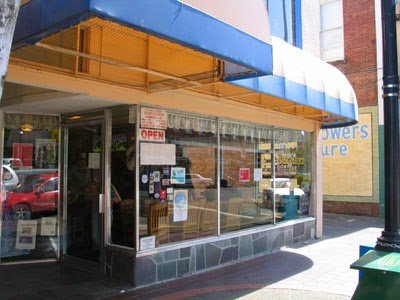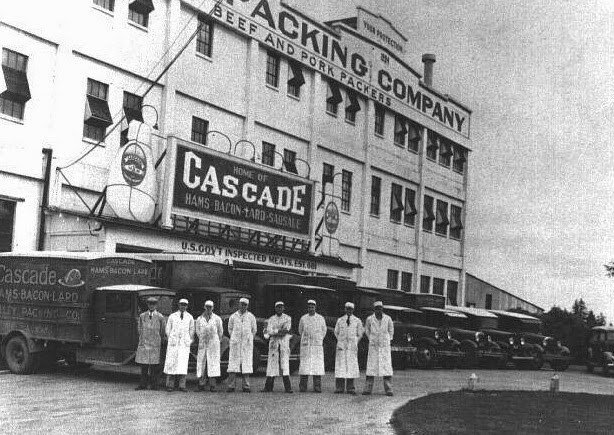World Events
- Elected the previous November, Franklin Roosevelt is inaugurated in April, promising to restore prosperity: the New Deal programs begin. Francis Perkins is names Secretary of Labor, the first woman in any President’s Cabinet.
- Congress passes two Amendments to the US Constitution: the 20th moves Inauguration Day from March to January; the 21st repeals the prohibition of alcohol sales. Cannabis use is forbidden by the Federal Government.
- Dark clouds overseas: Hitler becomes chancellor of Germany, nullifies many citizens’ civil rights; “concentration camps” open. The burning of books becomes a feature of public life. Starvation spreads across the Soviet Union due to forced collectivization of farmlands.
- The Mount Rushmore Memorial is dedicated in South Dakota.
- The Postal Telegraph Company introduces singing telegraphs for personal congratulations and celebrations.
- The first Krispy Kreme doughnut shop opens in Nashville, Tennessee.
- “Cavalcade” is the Academy Award winning film. The Store, by T.S. Stripling, wins the Pulitzer prize for best novel.
In Salem
Established just as the Depression began in 1929, the Court Street Dairy Lunch served thrifty customers during the 1930s. For many of them, their greatest concern was holding on to their jobs as the Depression deepened. Meanwhile they enjoyed inexpensive lunches, quickly served at the counter in the center of the small restaurant or at tables with a view of pedestrians passing by on Court Street. It became Salem’s first “fast food” restaurant.
When you visit
Court Street Dairy Lunch continued to be owned and operated by three generations of the Morris family until 1994. Under new management, it continues to be a popular space to have lunch and was filled with loyal customers when it celebrated an 80th birthday in 2009. Customers are reminded of past Salem events by the historical photographs decorating the walls. The photograph above was taken in 2007.
Other Events
- Prohibition handicaps the hop growers of North Salem, Champoeg and Gervais. Marion County had grown a third of the hops in the United States in 1900. However, chemists for the Oregon-Washington Water Service Co., anticipating the repeal of Prohibition, pronounced Salem’s water as admirably suited for brewing purposes.
- The circus coming to town was a popular and inexpensive family entertainment in the 1930s. An elephant named Tusko is the big attraction in Salem this year. The State Fair reduces the admission fee by half, from fifty cents to twenty-five.
- On December 19, concert pianist Winifred Byrd returns to her hometown to perform at the Capitol Theater as a soloist with the Portland Symphony Orchestra, conducted by William van Hoogstrattan. According to records of the day, tickets to the show cost fifty cents, $1.00, and $1.50. It was noted that a Steinway piano was used for the concert. Salem had been a small town of 17,000 when Winifred was growing up, not a city where young musicians might expect to find superior training, but this talented musician had her mother’s memory to inspire her. Teresa Holderness Byrd received a music degree from Willamette University and taught piano until her death in 1886 when her daughter was two years old. Winifred Byrd attended Salem schools and Willamette University for a year. She left Salem to study at the New England Conservatory of Music and then traveled in Europe for graduate study. The Oregon Journal newspaper of Portland summed up Winifred Byrd’s Oregon appearances in the following review. (Her audience was) “composed of many of the music lovers and leading families of the metropolis. By her own genius and power she is entitled to approval in her own home state among her home people.”
- At the Valley Meat Packing Company on Portland Road, a commercial photographer is hired to produce a series of pictures to document most of the operations and employees of the company. These photos were mounted and prominently displayed on the main office wall where customers and farmers could appreciate the diversity of one of the northwest’s largest meat processing plants. The one above, from Oregon Historic Photograph Collection of the Salem Public Library, shows the truck fleet and deliverymen and illustrates the addition of a new wing in 1924, which extended the building by two bays. It is from the Valley Packing Company collection with information provided by Douglas Chambers who worked in nearly every department in his family’s business. These photographs are now a historical record of an important local business that closed in 1959. Another business occupies the structure, now painted brown with windows blinded. It stands the west of Portland Road and can be seen traveling north, approaching the railroad overpass.
- Senator Charles McNary of Salem is the principal sponsor of the Bonneville Dam construction that begins this year.
- Salem reverted to old-time “‘moonlight” night. Under a plan to effect a savings of $3,000 a year in the city’s light budget, all street lights, except downtown clusters, were turned off between 7 p.m. and 4 or 5 a.m. on clear nights when the moon was half full or better and when the sky was not obscured by clouds or fog.
- Ernest and Josephine Frederickson purchase the Willamette Sanatorium on Winter Street. It will become a boarding house of 27 rooms known as Frederickson Hall. Convenient for Willamette University students and legislators at the State House, it was also popular for the delicious meals prepared by Mrs. Frederickson. The building was razed in 1953 for the university law library.
- Our police are supplied with radios for their vehicles.


